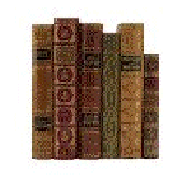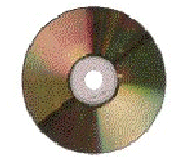The Poetry Porch 3: Poetics
Poetry and Education:
Robert Pinsky on the Future of Poetry
Introduction: The week of April 7, 1997, Joyce Wilson and Robert Pinsky participated in this interview, which was conducted through email. Pinsky is Professor of Creative Writing at Boston University and was recently appointed U. S. Poet Laureate.
JW: Dana Gioia, in his book Can Poetry Matter?, has stressed the need for poets to critique other poets. After your first two collections of criticism, The Situation of Poetry and Poetry and the World, both greeted with considerable acclaim, will there be a third volume? Do you agree with Gioia that it is important for poets to write criticism? Has the success of your poetry kept you from writing more criticism?
RP: In The Situation of Poetry a young poet tries to make theoretical room for the kind of poem he likes and wants to write. That is poetry in relation to poetry, and it turned out to be a book that was read. In Poetry and the World I tried to explore what seemed to me the greatest omission of the earlier book: poetry in relation to the worldly world outside poetry. I'm not sure I have a subject of equal importance to me for a third book. Maybe some day.
JW: Yet many poets that I know are hesitant, some even refuse, to write reviews. Often a review of a first book can present hurdles much more daunting than an assigned paper on Shakespeare or Wordsworth (this has been my experience). Is there a remedy for the reluctance of poets to write reviews? Does reviewing poetry contribute to the "higher art of criticism"? Do you think the MFA programs are placing sufficient emphasis on the dual disciplines of critiquing and creating?
RP: I'm not sure. A few thoughts and principles: reviewing may be most appropriate for young poets rather than older ones. It is maybe best performed by someone who is setting out to survey the field in a spirit driven by the future, the next step--and someone who does not yet know too many people personally. I don't think negative reviews should be written of a first book, or of a little-known author: if unknown work is bad, let it sink of its own weight. Maybe there would be a higher standard of reviewing if people read great reviews of the past a bit more: Beerbohm on theatre, Shaw on music, Jarrell or Pound on poetry.
JW: You spoke recently at a panel discussion, "Poetry as Knowledge," which was presented at the Harvard Graduate School of Education. What were your impressions of that event?
RP: I was impressed by the urgent need to restore poetry, and in particular great poetry, to the curriculum. Kids in school deserve the best, not just the occasional dollop of contemporary stuff, or something chosen because it will edify or soothe them in some sociological way. I was also interested, on that occasion, by the emphasis on reading aloud, on the pleasure of hearing the words of a poem, or typing up an anthology of poems one likes--in a word, an emphasis on what athletes call "body knowledge." Poetry has to do with two simultaneous kinds of knowing: through the vocal reality that comes out of the body and through a more abstract or disembodied kind of cognition. This is what I understand Pound to mean when he says, "Poetry is a centaur."
JW: Can you expand on the process of keeping this personal anthology of poems?
RP: The student types out poems that he or she loves. The idea is to produce, say, thirty pages that present a definition--no--example of what that person means when she says the word "poem" or "poetry."
JW: It seems that poetry brings out the charismatic (the need to express feelings and thoughts experienced privately) in people today. Teachers feel they already know how to teach poetry, laymen think they already know how to write poetry; theyíve been doing it for years, they have drawers full of poems they want to show you. But I feel that perhaps what is needed in the poetry world is more orthodoxy (study and familiarity of the word or text). Is the nature of poetry to blame in this situation? Or is this charisma indicative of a trend, a temporary enthusiasm taking shape in the presence of poetry, soon to move on to another arena, like photography (anyone can purchase and learn to use a camera)?
RP: The camera like the guitar is a product of what might be called external technology: we make these beautiful and productive artifacts with other artifacts, tools and machines and adhesives, etc. The poem is based on what you could call an internal technology: the medium is the beautiful and productive human body, its breath moving up the torso through the voice-box and out through the muscles and surfaces of the shaping mouth. The appeal of that individual scale, that internal technology, is distinct. In a world of ever more elaborate artifacts (this computer, for example), the appeal of the poem may become ever greater.
JW: I enjoyed your presentation on Christopher Lydonís The Connection, in which you invited callers to read a poem written by someone else. It was ironical to hear how many callers were dying to read their own work. Yet I felt that this session illustrated the benefits of reading anotherís work, especially the work of an established artist; in many cases, the caller read the poem of his or her choice with great clarity and feeling. Listening, I was especially moved by the readerís understanding and possession of the poem by James Dickey.
RP: The charm and pleasure of reading great poems aloud is poetry, for me.
JW: The internet is increasing opportunities for hearing poetry read aloud.
RP: Slate magazine, where I am poetry editor, publishes a poem in audio as well as text with each issue. The Library of Congress has a large collection of taped readings, going back many years, and I hope we can make those available, in audio, the internet.
JW: At poetry readings for amateurs (those who have not published), many participants say they want connection with an audience, not criticism. Yet I am detecting much disappointment in those who have gone to Poetry Slams and not received the recognition they thought they deserved. Getting back to the issue of criticism again, but this time at a grass roots level, I feel that the poets who come to Slams deserve more learned, thoughtful reactions to their work than they are getting by winning, or losing, an award from a randomly selected, unqualified judge. What parameters would you suggest in encouraging this criticism? Or in understanding the situation?
RP: What is most sought, I think, is attention. Attention is rare and precious, and will always be in short supply, especially in its higher grades. The greatest reward for art may be not applause but genuine, unforced attention.
Return to the beginning.
Return to the Poetry Porch homepage.Send comments via email to Poetry Porch Mail.


